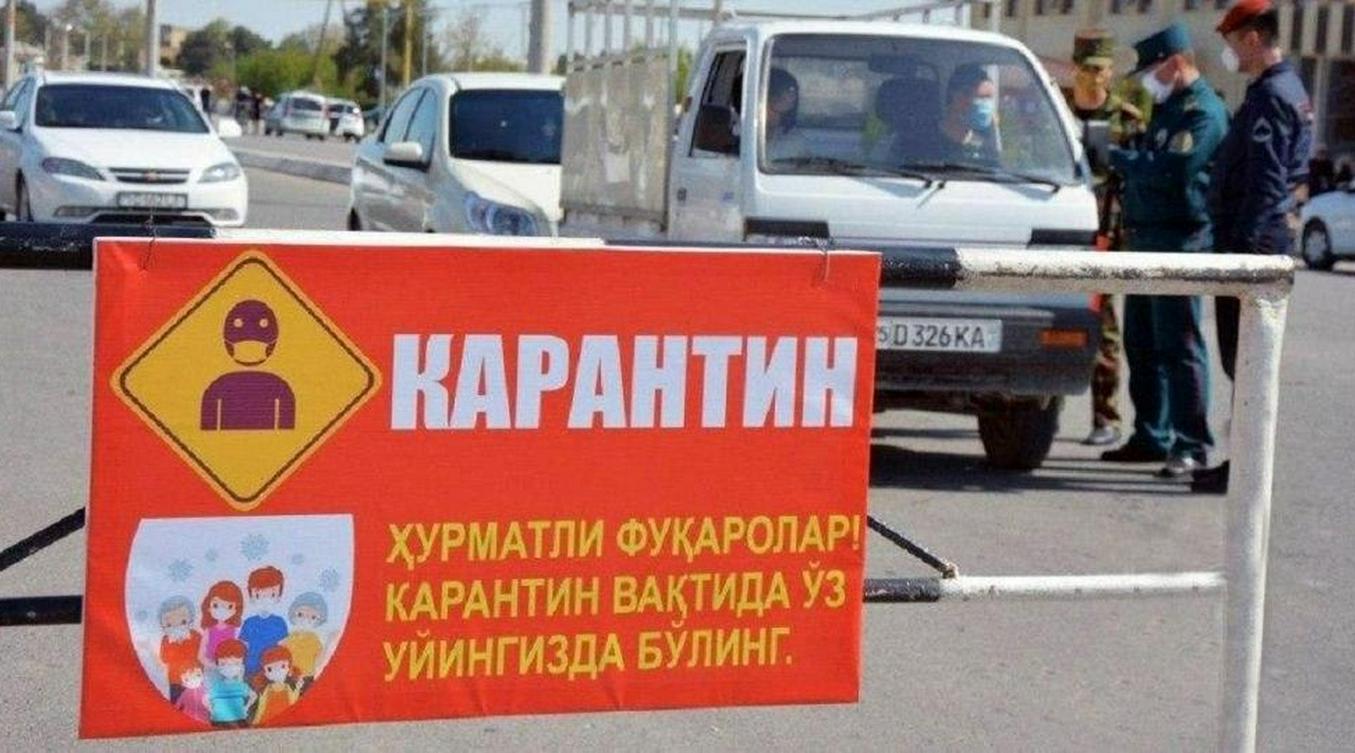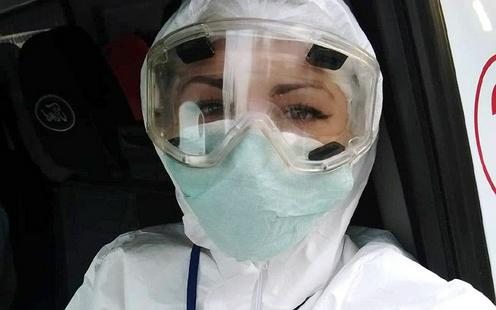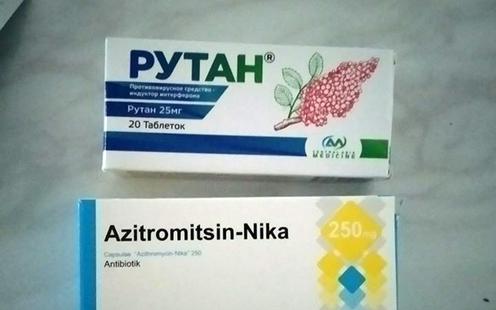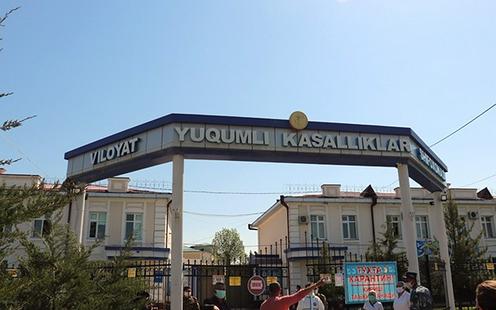At the end of July, Uzbekistan extended its current lockdown until 15 August. The situation in the country at present is deeply concerning: paramedics are reporting hundreds of callouts a day and ordinary Uzbeks share stories of inundated hospitals whose medical staff are totally unprepared for the fight against COVID-19.
Speaking of the need to extend the present lockdown, Uzbek deputy prime minister Aziz Abduhakimov argued that Uzbekistan has no other option if it wants to defeat the coronavirus. Abduhakimov has every reason to make such a forceful statement: two of his friends have died of COVID-19 and his parents, too, caught the virus following a trip to the market and are now undergoing treatment.
The lockdown extension is backed not only by government ministers, but also by medical staff who are engaged on the front lines of the fight against the virus. Among them is 22-year-old Tashkent paramedic Zlata Gafurova. In her view, a lockdown is the only way to hold back the epidemic. Speaking to Fergana, Zlata recounted that she has been working for the ambulance services since she completed her studies at the Borovsky medical college. The young woman plans to advance in the profession by entering the medical institute later this year.
“In November it will be four years since I started working as a paramedic,” Gafurova says. “For six months I worked as a trainee, for another year I went around with a doctor as an assistant, and for the last three years I have been working on my own. The first case of COVID-19 in Uzbekistan was registered on 15 March, I was working at the time. Lots of calls started coming in, people immediately began to think that if they were ill then it had to be the coronavirus. There were a lot of people who were just panicking and calling for an ambulance as soon as they had the slightest temperature rise.”
Already back in mid-April the emergency services in Tashkent started to operate on emergency footing.
“Before, we had time to have a bite to eat or go to the supermarket, pop in to the pharmacy, sit down for 15 minutes and drink some tea. Now there’s no time for anything. Before the pandemic, each team was made up of two people – a paramedic and a doctor, and I had only 6 or 7 shifts per month. Now we all work on our own and we’re working 150%, one day on, one day off,” Zlata recounts.
If people need to be carried out of their homes then ambulance staff are forced to ask for help.
“We run and call on the neighbours or go out and fetch the driver. Although it’s mostly old people, no one refuses. We ask passers-by to help, but not everyone agrees. People are scared. They try to avoid us. When we pass by, a group of people sitting together see us and say “that’s coronavirus, let’s stay out of their way”. When we enter a shop people also say: ‘You’re ambulance staff, ‘corona’ – don’t come in, we’ll serve you through the window.’”
Zlata’s shift starts at 8 am and ends at 9 am the following day – 24 hours for the shift itself and an hour to shower, change her clothes, pack her kit and get the ambulance in order. On average, one ambulance gets 25-30 callouts per 24-hour period. Gafurova’s own record is 35 callouts in a single shift.
Zlata’s unit serves Tashkent’s biggest district – Yunusobod. 25 teams cover the area in total. Compared with the early stages of the pandemic, there are now three times as many callouts. Between March and May, medics were responding to 200-250 calls in the district each day; now the number has risen to 750. Ambulance staff do not even have time to eat.
“When we run out of medication, we go to the substation and, while they give us the drugs, we get five minutes to go to the toilet and drink some water,” the young paramedic says. “We have a set amount of time for every callout, but we don’t always make it. In total, between the moment we get the call, head out, attend to the patient and respond to the next call, no more than 40 minutes is supposed to go by, but that’s impossible. I’m sure that this has just been put in place because there are neither enough medics nor enough ambulances.”
Gafurova adds that the ambulance do not carry coronavirus test kits with them.
“If the patient is not in a serious condition then we leave them where they are and call out a local GP instead. If necessary then he will give instructions for a test to be carried out and the patient will go and get tested. If the result is positive then special epidemiological ambulance teams take the patient in to hospital. The ambulance services are for people who require urgent hospitalisation. But we can also provide people with oxygen on the spot, we are fully equipped to do that.
According to Zlata, the ambulance services have no problems in terms of equipment. Medics have all they need: goggles, hoods, face masks (both basic ones and respirators), an unlimited supply of gloves, suits that can be changed whenever necessary, and “the vehicles are also in good condition”.
“But we’re still scared of getting infected,” she adds. “We clean the vehicles and change our suits after every patient.”
Zlata points out that medical staff who did not want to work during the pandemic were allowed to take unpaid leave. All the others take it in turn to go on a break. When it comes to the hospitals themselves, Gafurova thinks that there are sufficient beds for coronavirus patients.
“Almost every week they are opening new hospitals,” she says. But they only admit those who need to be hospitalised. If someone has a mild form (of the virus) then they can recover at home, with GP supervision. Another good thing here in Uzbekistan is that medication is being handed out for free, even if someone is recovering at home. And gloves and masks too.”
Work is complicated by the fact that the paranoid and hypochondriac frequently call the ambulance services and divert medics’ attention from those who really need help, she says. Fortunately, Zlata herself has not yet had any of her patients die during a callout. There was one very severe case, where a woman was unable to breathe, but they managed to get her into hospital in time.
“But I know people who have died from corona. In my opinion, the lockdown measures are necessary and we shouldn’t have eased them. We reopened restaurants, swimming pools, and the number of patients rose sharply. Now we are in need of serious restrictions,” Gafurova concluded.
They don’t help, they just make you worse
The situation is difficult right now in other cities around Uzbekistan too. Media reports and social media posts make it clear that people in Samarkand are dying of the coronavirus but that far from all of them are being included in the official statistics. In July, for instance, the death of Samarkand city clinical hospital doctor Zebiniso Narzullaeva was announced in local Facebook groups, yet neither then nor later did her name figure in health ministry reports of virus victims. Samarkand surgeon Furqat Valiev has posted a video showing the photos of colleagues who are assumed to have died of COVID-19 as a way of honouring their memory.
Stories of those who know what it is like to fall sick with the coronavirus have started to appear more frequently on social media. Samarkand resident Khurshida Jalilova is the author of one such post. She told Fergana that she spent just one day in the “red zone” of a local hospital before literally fleeing from the place, without receiving either any kind of treatment nor even a test result for COVID-19.
“I was taken into hospital on 20 July. I felt bad and had coronavirus symptoms. I didn’t have a temperature, but I had a sore throat and a blocked nose and was recovering at home. On the fourth day I felt a strong pain in my lungs and got scared...”
Medics in hazmat gear came and took Khurshida Jalilova into hospital. Khurshida thought that she would be given a test for COVID-19 and, if the result came back positive, hospitalised. She also assumed that the hospital would be divided into three zones in order to prevent the spread of the infection – green, yellow and red. In reality, however things turned out very different.
“They took me to the Shamsiev children’s surgery centre,” Khurshida says. “They squirted me with disinfectant and took me up to the fifth floor. It was empty there, there were just two women lying in one room. I was placed in another room, but since it was very hot and stuffy, I asked to be taken down to a lower floor. They put me in a room with two beds on the fourth floor. I didn’t let anyone else in. But the hospital corridors are narrow, and there were 7-8 people in every room. Everything seemed to be a “red zone”, yet 60% of people had not received a test result. I demanded they give me a test for four whole hours, and only then did a special team come and do a test. I also asked them to do a CT scan of my lungs, but they told me that there was no such machine in the hospital and the clinic’s laboratory doesn’t deal with ‘Covids’”.
Throughout the whole day, Jalilova was given just three kinds of tablets – Rutan, Azithromycin and hydroxychloroquine sulphate, which, she is sure, is banned all around the world. She refused to take them, saying that they are banned and that, rather than helping, they merely make things worse. Nurses then gave her an intramuscular injection of antibiotics.
“In general the hospital is not well prepared. There is no equipment, no medication, and doctors don’t seem to care if a patient has other illnesses. A friend of mine was admitted there, she was really suffering, but there was no kind of intensive care ward, and she died.”
Khurshida Jalilova is certain that the fact that the hospital was not divided up into zones and that all patients are effectively grouped in one place could have led to an even greater number of people being infected.
Jalilova says that the day she was hospitalised there was a water outage all over the city. She was given a pack of one-litre bottles to drink, and she used the same water to wash her hands. The hospital toilets were dirty and she instead used a public bathroom out on the streets. Besides this, she said, not one time over the course of the whole day were the rooms and corridors disinfected.
“A few hours after they put me in the room, a doctor came and asked me to vacate it as a family with three small children had just turned up. I agreed and went and sat in the canteen.”
The family with kids were brought to the room without anyone cleaning it in advance. Two hours later the doctor came to her again and said that she could go back to the room as another one had been found for the family.
“Again, they didn’t clean the room,” Jalilova says. “According to the doctor, their diagnosis was negative. It seemed strange that they had managed to test them so quickly when I was still waiting for the results of my test.”
Jalilova says that while she was in hospital she started to feel worse. She began to suffer from kidney failure and her arms and legs swelled up. She decided she had to get out of there. Besides this, she had not been given any food for 24 hours. The previous evening her son had brought her something to eat. In the morning she was offered some sausage, a hardboiled egg and compote, but she had been unable to eat.
“There weren’t even pillows in the room. At night I put a blanket under my head. I didn’t sleep the whole night: if the door comes open then people’s coughing and spluttering will carry into the room. In the morning I ran out of there screaming, because I knew that if I stayed there for a week then I was not going to get out alive.”
And so Jalilova did not wait around for the results of her test. Only four days later did she find out by telephone that her coronavirus test had come back negative.
“Today the rector of the Samarkand Institute came to see me,” Khurshida recounts. “He had read my post about the hospital on social media and wanted to find out from me first-hand what had happened. He told me that everyone with a negative test result had been discharged from hospital. This was also an issue I took up: where is the guarantee that we didn’t get infected while we were there? I told him everything – that no one provides any help in the hospitals, that there are no scanning or X-ray machines and so on. He promised to fix all the problems.”
Jalilova received the remainder of her treatment at home. Friends of hers found her a doctor and she was given consultations online. The doctor ordered tests to be run and a lung scan to be carried out. After getting all of this done at various municipal and private clinics, Khurshida Jalilova sent all the results off to the doctor and was treated in the comfort of her own home. On 26 July she completed a course of IV fluid treatment and started to feel better. In two weeks’ time Jalilova plans to take a second coronavirus test.
“I don’t think what they’re doing in the hospitals is providing treatment. These tablets are not treatment. People need breathing equipment to get their lungs working, but they don’t have these either. People are suffocating to death. I’m really angry that we’ve had four months to prepare – the government forced us all into lockdown but then didn’t do anything themselves,” Khurshida Jalilova concludes.
***
Among the residents of Samarkand there are also those who speak positively of the local healthcare system. In the closed Facebook group Samarkand & Самаркандцы, Lola Zaidova has recounted her story as a former patient at the city’s infectious diseases hospital. She was hospitalised there together with her son after testing positive for COVID-19.
“It was really terrifying, but as soon as we arrived at the hospital we were directed to block C. From the way we were met and shown to our room, from the consideration and professionalism shown by the staff, all of my fear simply dissipated. I want to thank senior doctor Sodiq Islomovich, cardiologist Javlon, nurses Mahbuba and Nigora, the nursing assistants, the cooks, the National Guard soldiers and police officers who worked there. They are all one solid team, one family,” Zaidova wrote.
According to her, after doing his rounds, the doctor personally replaces the oxygen canisters and helps the nursing assistants to disinfect the ward. Nurses even check on people in their rooms at night to make sure all is well.
Zaidova also thanks the cooks “for really delicious 4-star food” served in single-use receptacles. She stresses that the food and medication were free and asks people not to believe rumours going around about patients being forced to sign papers setting out the amounts allegedly spent on their treatment.
Needless to say, Zaidova’s post attracted a number of sceptical comments, with some people even accusing her of propaganda. Yet those who supported Zaidova and in turn gave thanks to medical staff were considerably greater in number than the sceptics.
Yekaterina Ivashchenko
-
 05 February05.02The “Guardian” of Old Tashkent Has Passed AwayRenowned local historian and popularizer of Uzbekistan’s history Boris Anatolyevich Golender dies
05 February05.02The “Guardian” of Old Tashkent Has Passed AwayRenowned local historian and popularizer of Uzbekistan’s history Boris Anatolyevich Golender dies -
 23 December23.12PhotoTokyo DriveJapan to invest about $20 billion in projects across Central Asia over five years
23 December23.12PhotoTokyo DriveJapan to invest about $20 billion in projects across Central Asia over five years -
 17 December17.12Sake for SixCentral Asia’s Rapprochement with Japan Comes with Hidden Pitfalls
17 December17.12Sake for SixCentral Asia’s Rapprochement with Japan Comes with Hidden Pitfalls -
 24 November24.11Here’s a New TurnRussian Scientists Revive the Plan to Irrigate Central Asia Using Siberian Rivers
24 November24.11Here’s a New TurnRussian Scientists Revive the Plan to Irrigate Central Asia Using Siberian Rivers -
 11 November11.11To Live Despite All HardshipUzbek filmmaker Rashid Malikov on his new film, a medieval threat, and the wages of filmmakers
11 November11.11To Live Despite All HardshipUzbek filmmaker Rashid Malikov on his new film, a medieval threat, and the wages of filmmakers -
 22 October22.10Older Than the Eternal CityWhat has Samarkand accomplished in its three thousand years of existence?
22 October22.10Older Than the Eternal CityWhat has Samarkand accomplished in its three thousand years of existence?







